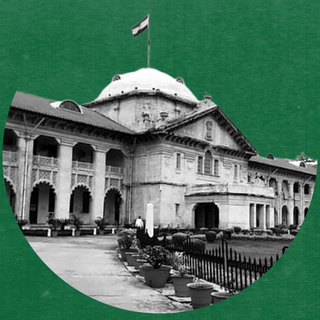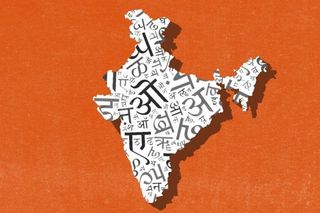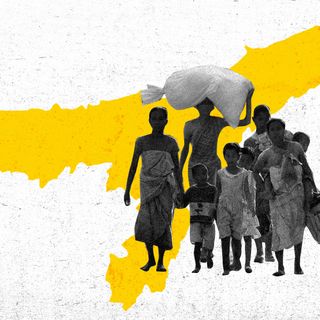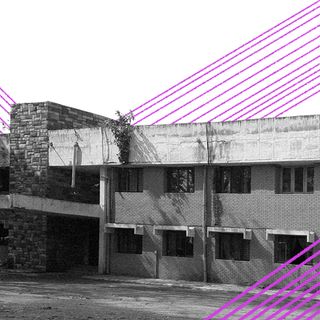
Hindi Isn’t India’s National Language. Why Does the Myth Continue?
As a nation, we are familiar with false memories. Cricket is not our national sport. The lion is not our national animal. And Hindi, one of India’s regional languages, is not our national language.

A hospital circular last weekend, later retracted, asked a New Delhi hospital’s nursing staff to not converse in Malayalam, because “maximum patients and colleagues do not know this language.” They were advised to only use English and Hindi while talking to patients. Logical fallacies aside (why will the nurses talk to the patients in a language they don’t understand?), the dispute further fueled the long-held misconception that Hindi is our national language — when, in fact, we don’t have one.
As a nation, we are familiar with false memories. Cricket is not our national sport. The lion is not our national animal. And Hindi, one of India’s regional languages, is not our national language.
The argument and fervor around a national language — apart from being a political one — is also about history, culture, and the elusive idea of unity.
The Constitution is largely silent on the issue of a national language. The Eighth Schedule of the Constitution makes note of 22 regional languages, including Hindi. Hindi is limited to particular regions in the country — just like Bengali, Gujarati, Odia, or Kannada. However, the confusion began when, under Article 343 of the Official Languages Act, Hindi in Devanagari script and English were designated as the “official languages” — that is, languages used for official correspondence.
Further, the lack of an explicit notification stating that India has no national language led to confusion and space for falsehoods to thrive.
In 2010, a Gujarat court noted the false belief around India’s national language: “Normally, in India, majority of the people have accepted Hindi as a national language and many people speak Hindi and write in Devanagari script but there is nothing on record to suggest that any provision has been made or order issued declaring Hindi as a national language of the country.”
Adding to this misinformation and confusion, Article 351, a directive order, states that it is the government’s duty to promote the spread of Hindi, so that it serves as a way to express India’s composite culture.
Another legal bias is reflected in Article 348(2) of the Constitution and Section 7 of the Official Languages Act, 1963, which allow Hindi-speaking states, such as Bihar and Rajasthan, to use Hindi in their respective high courts. Although the Tamil Nadu government urged the Centre to make similar provisions for Tamil, the court rejected the petition, arguing that such a change would impact the transfer and posting of high-court judges across India.
Related on The Swaddle:
How Can We Understand a Language, but Not Speak It?
Experts have noted the elevation of Hindi in official use too. More recently, Hindi’s use as an official language, in government addresses by the Prime Minister, Health Minister, or the Finance Minister — excluding people who speak other regional languages — has given it a further stamp of prominence. Railway tickets are only printed in Hindi and English and government websites rarely go beyond these two languages. In Delhi, examinations and courses are mostly offered in English and Hindi, although Urdu is an official language, too.
Hindi holds a special place in national consciousness because of the belief that it is spoken by “most” people in India, with the 2011 census pegging the number of Hindi speakers at almost 44%. However, G.N. Devy, who headed the People’s Linguistic Survey of India, notes that this apparent majority of Hindi speakers doesn’t necessarily paint an accurate and representative picture.
“That Hindi was given a pride of place [as the official language], not ‘national’ as desired, but still an important one, resulted in many anomalies in the years to come,” wrote Karthik Venkatesh. “The tragic outcome of this decision was the subsuming of the varied north Indian tongues under the bland label of ‘Hindi’.”
According to Devy, there are approximately 65 such languages. Several other studies and statistics also corroborate the fact that Hindi is not the most widely spoken language in India — so the argument favoring the “many” deserves scrutiny.
Arguably, only five states in India have Hindi as their “native” language. But even in these regions, research shows locals either speak in dialects associated with their communities or converse in a form of Hindi that is drastically different from the mainstream version. For instance, in Bihar, the Bhojpuri dialect or the mother tongue Maithili are more common; in Chattisgarh, people use a dialect known as Chattisgarhi.
Further, as novelist Priyadarshan argues in The Wire, “All Indian writers are viewed as Hindi writers despite writing in various languages as they are translated into Hindi.” From Punjabi author Amrita Preetam to Indira Goswami in Assamese, they are folded into the Hindi literary domain.
There are also some historic issues at play here.Post partition,Hindi’s virtue was that it existed as a sole, distinct companion to English. Moreover, Hindi came to be antithetical to English and the “elitism” associated with it. In northern states, particularly rural areas, English is spoken by a small section of people. This false binary of English and Hindi meant that Hindi became the relatively easier option for those who couldn’t access English.
Related on The Swaddle:
New Education Policy Will Promote Mother Tongues Through Bilingual Teaching
Experts have also ascribed the perpetuation of Hindi imposition to political rhetoric linked to a certain idea of nationalism. “And that [Hindi]has become a very dominant, authoritative, symbolic construct during the nationalist movement and to a great extent in the post-independent phase as well, when the state and its official bodies began to expand, Hindi in as many areas as possible, also beyond the Hindi heartland,” Mithilesh Kumar Jha, author of Language Politics and Public Sphere in North India: Making of the Maithili Movement, told Himal Mag.
Today, the Hindi myth continues to be perpetuated because in all practical senses, Hindi acts as the common national language in urban settings. As the working middle-class migrate to cities, they adopt Hindi for convenience and logistical ease, inevitably boosting the language’s hegemony. “Ordinary people … want to learn the standard language to deal with government officials, otherwise, they will not be considered literate and their voice will not be heard,” Sadhana Saxena writes in EPW.
Another factor that stokes this false notion is statements by some public officials in the past, who have given illegitimate status to Hindi or attempted to move towards a unilingual policy. In 2017, India pushed to include Hindi as a language of the United Nations — “which in essence was a backdoor attempt to enshrine it with the ‘national language’ status,” Karthik Venkatesh notes. Vice President Venkaiah Naidu publicly declared in 2018 that Hindi should be the national language.
The tension between a desire to build national unity anchoring Hindi is sharply contrasted by the exclusion of other linguistic groups. It strips down to one idea: whether national integration can take precedence over people’s linguistic and cultural identities. Arguably, language remains key to every political and social discourse, so the question of language is not just about imposition — but about threatening one’s individual’s cultural identity.
“Language is integral to culture and therefore privileging Hindi over all other languages spoken in India takes away from its diversity,” an article in EPW explains.
Saumya Kalia is an Associate Editor at The Swaddle. Her journalism and writing explore issues of social justice, digital sub-cultures, media ecosystem, literature, and memory as they cut across socio-cultural periods. You can reach her at @Saumya_Kalia.
Related


Assam CM Says Immigrant Muslims Must Adopt “Decent” Family Planning Measures
